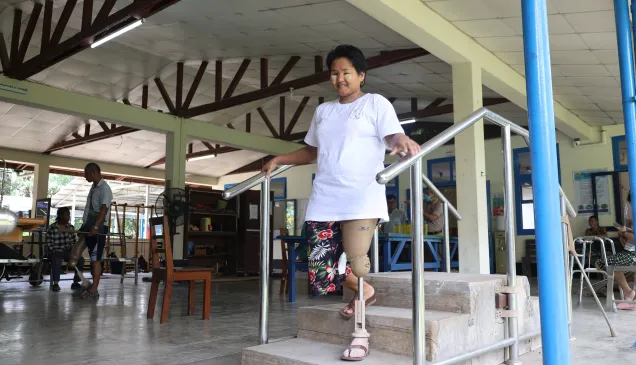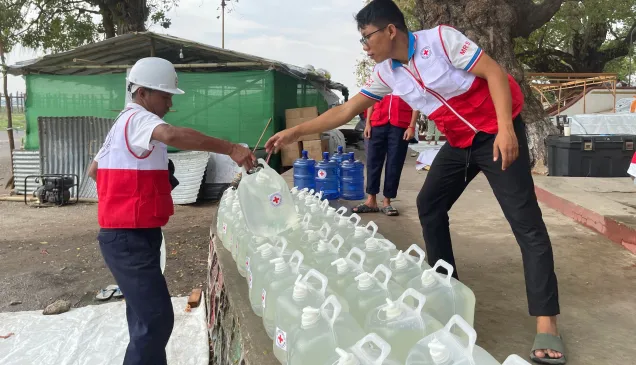Myanmar: Over 11,000 conflict-affected people in Kachin receive clean water
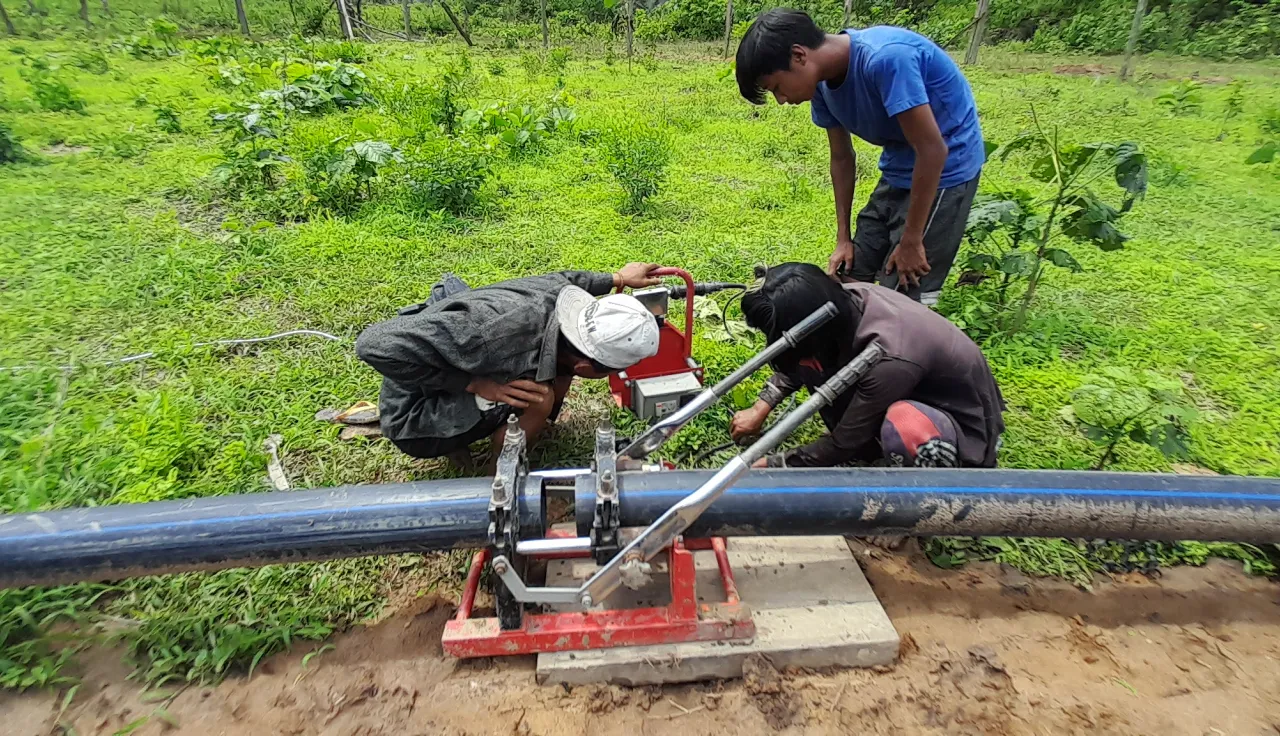
La Hkum Lu Aung remembers a time when her life was peaceful and pleasant. Her family had enjoyed normal days, working hard to raise farm animals and cultivate rice and other crops in Nam Lin Pa village of Mansi Township, Kachin State. That was almost ten years ago, before conflict disrupted their lives and they had to flee from their homes. La Hkum Lu Aung has been living in Maing Khaung KBC camp for internally displaced people since then.
"Life at the camp has been full of difficulties," she says. Among the different challenges that they have been facing, La Hkum Lu Aung says one of the most difficult problems was the lack of access to clean water.
"Everyone at the camp used to collect water from a single hand pump so we could hardly ever collect sufficient water for ourselves. The water was also dirty and had high iron content, making it unsafe for drinking or cooking. It was not adequate even for washing clothes because it used to stain all our clothes," she says.
In Maing Khaung village, a total of 6,200 people suffered from limited access to clean water, one of the most conflict-affected areas in Kachin State. The village also hosts 1,600 displaced people.
Therefore, both displaced people and host communities would get water from hand-dug wells and hand pump boreholes, but it was not good enough for drinking, cooking, and washing clothes.
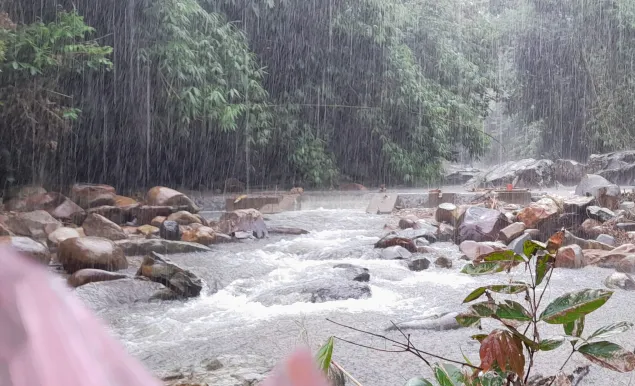
Lai Ka creek, which is 223 meters above sea level, is providing clean water to over 6000 residents in Maing Khaung village.
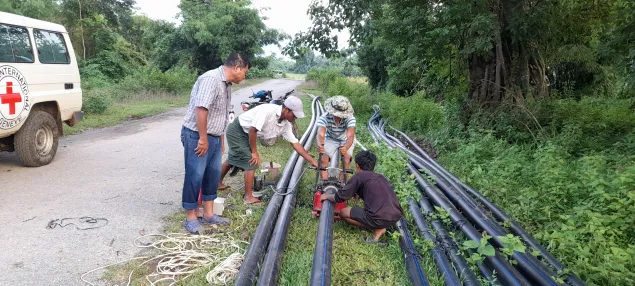
An ICRC engineer is checking the pipeline installation on the way in Laika village.
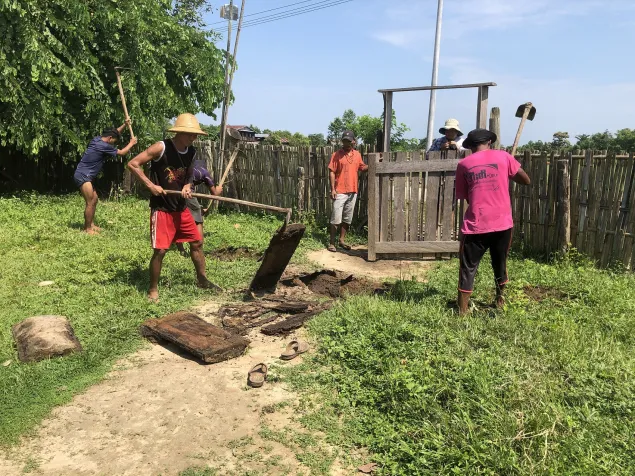
Community members help in setting up the gravity flow water system in Kachin State.
To improve access to clean water for the people living in remote and conflict-affected areas of Kachin, the International Committee of the Red Cross (ICRC) has implemented four gravity flow water system projects over the last five years, benefiting 11,000 people.
The gravity flow water systems, designed to efficiently transport water from uphill springs to low-lying areas through pipelines, were set up in Sumpyiyang village (Putao Township), Lawa village (Hpakant Township), and Taunglin and Maing Khaung villages (Mansi Township). The system helps people save time and effort in collecting water from distant water sources and increases their access to clean water.
"During our assessment visits, villagers shared their everyday struggle to access clean water in sufficient quantity. They were also eager to work collectively in creating a solution," says ICRC engineer Ko Thein Oo. He shares that the communities came together to carry materials to the site, dig for the pipelines, build grooves when the pipelines were laid and connect pipes to transfer water within the villages.
"The gravity flow water system is a simple and cost-effective method of distributing water in areas where electricity or fuel is not available or affordable," says Ko Thein Oo. The system's effectiveness depends on various factors, including the terrain, the distance between the water source and the point of use, and the demand for water. "In Kachin, the system proved to be effective," he adds.
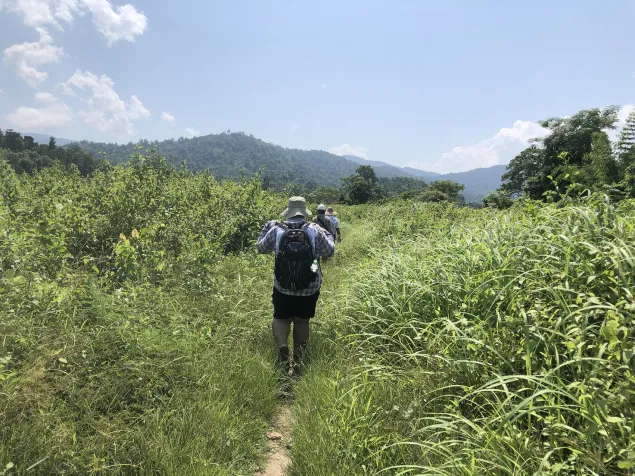
An ICRC team treks through the hills in Kachin’s remote areas to assess water sources for the community.
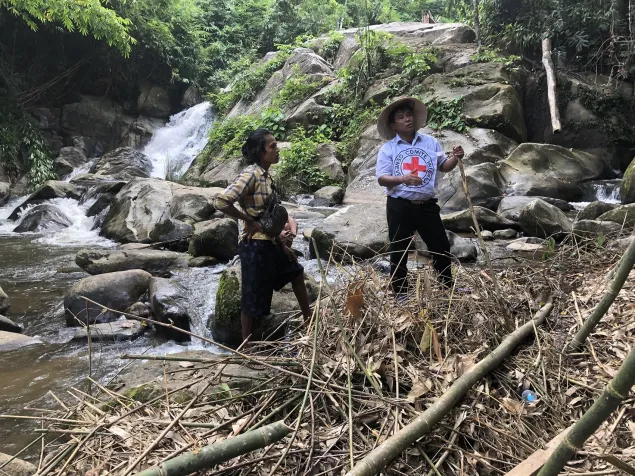
An ICRC engineer from Myitkyina sub delegation assesses the water source.
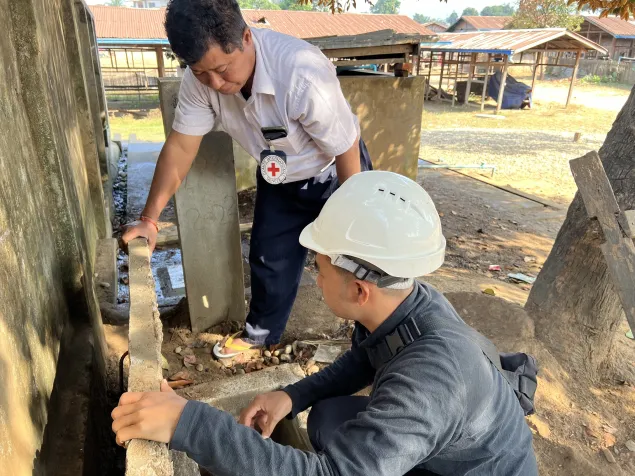
An ICRC engineer and his colleague are checking the functioning of water supply in Maing Khaung KBC displaced camp 1.
La Hkum Lu Aung expresses that the system has significantly improved their lives.
Now, we get clean water in abundance. We are no longer always anxious about our health and are even able to organize celebrations or events in the village without worrying about the quantity of water required. We appreciate the ICRC for all the help.

Lazing Bawk Mai - Zaw Hpang Ndawng/ ICRC
Lazing Bawk Mai, who is also from Maing Khaung village, says they used to struggle often to find someone to repair the hand pump. "I have four kids, which means that I have many clothes to wash. It used to be very difficult when we had to collect water from the hand pump. But since the ICRC set up the new system, I am not worried about this basic need. We have enough water, and it is very clean, so we drink without any hesitation," says Lazing Bawk Mai.


